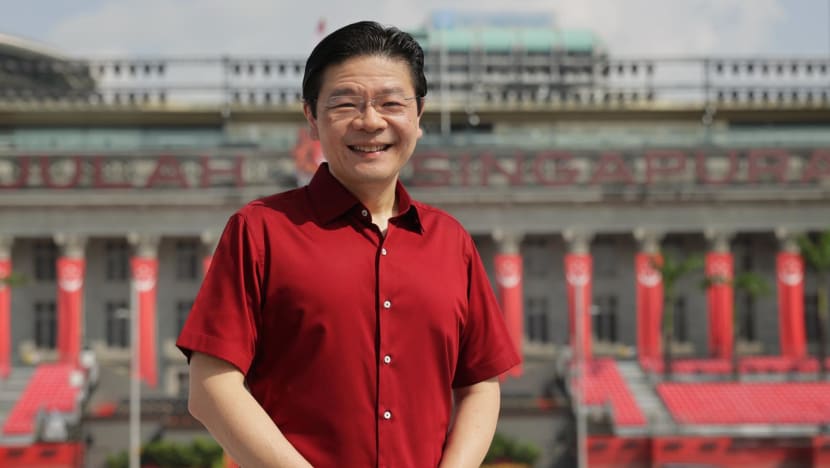https://www.asiaone.com/lifestyle/s...erral&utm_campaign=A1+trending&utm_content=c1
lifestyle

Singapore is one of the best countries to provide work-life balance, according to Remote.com's 2025 study.
PHOTO: Pexels
PUBLISHED ON August 07, 2025 4:18 PM BY Melissa Teo
When it comes to finding a job, one criteria many people would look out for is work-life balance.
And it seems Singapore is one of the best countries in the world to provide this, according to a recent study.
In Remote.com's 2025 Global Life-Work Balance Index, which ranked 60 countries, Singapore came in at 25, with an index score of 57.85 over 100.
At the top of the list is New Zealand, Ireland and Belgium, with index scores of 86.87, 81.17 and 75.91 respectively.
Though Asia generally didn't fare too well, Singapore is the top Asian country on the list for work-life balance.
This is followed by Malaysia, Japan, Taiwan, South Korea and Indonesia, which have index scores of 57.03, 56.54, 54.61, 53.42 and 52.07 respectively.
According to Remote.com's website, the global study was launched in 2023, with countries assessed for "important work-related factors" including statutory annual leave, access to healthcare, public safety and average hours worked per week.
"The goal was to accurately represent each country's life-work balance, reframing the familiar concept of 'work-life balance' to showcase how businesses in each country are looking after the lives of their employees and putting life before work," they said on their website, choosing to use the phrase 'life-work balance' instead.
The company pulled and analysed data in April 2025 and metrics were adjusted with index weights to reflect their relative importance.
For Singapore, we have healthcare benefits like a public insurance healthcare system and minimum statutory sick pay percentage of 80 to 100 per cent.
As for our safety levels on the Global Peace Index Ranking — where the lower the number is between 1 and 4, the better — we scored 1.34.
However, we do have areas that need improvement, based on the survey.
On average, an employee here works 42.60 hours a week, which is higher in comparison to countries like New Zealand, South Korea, Japan, which work 33.00, 37.90, and 36.60 hours a week respectively.
According to their ranking on statutory annual leave, we rank one of the lowest on the list globally, with only 18 days. This is compared to countries like UAE, Ireland and South Korea, which reportedly have 44, 32 and 30 days of annual leave respectively.
Our performance on the study's happiness index is also not the highest, with a score of 6.57 out of 10.
The 2023 and 2024 reports from Remote.com's past studies only showed the top 10 countries in the world on the list. Singapore was not ranked in any of these.
lifestyle
Singapore ranks top in Asia for work-life balance and 25th in the world, according to Remote study

Singapore is one of the best countries to provide work-life balance, according to Remote.com's 2025 study.
PHOTO: Pexels
PUBLISHED ON August 07, 2025 4:18 PM BY Melissa Teo
When it comes to finding a job, one criteria many people would look out for is work-life balance.
And it seems Singapore is one of the best countries in the world to provide this, according to a recent study.
In Remote.com's 2025 Global Life-Work Balance Index, which ranked 60 countries, Singapore came in at 25, with an index score of 57.85 over 100.
At the top of the list is New Zealand, Ireland and Belgium, with index scores of 86.87, 81.17 and 75.91 respectively.
Though Asia generally didn't fare too well, Singapore is the top Asian country on the list for work-life balance.
This is followed by Malaysia, Japan, Taiwan, South Korea and Indonesia, which have index scores of 57.03, 56.54, 54.61, 53.42 and 52.07 respectively.
According to Remote.com's website, the global study was launched in 2023, with countries assessed for "important work-related factors" including statutory annual leave, access to healthcare, public safety and average hours worked per week.
"The goal was to accurately represent each country's life-work balance, reframing the familiar concept of 'work-life balance' to showcase how businesses in each country are looking after the lives of their employees and putting life before work," they said on their website, choosing to use the phrase 'life-work balance' instead.
The company pulled and analysed data in April 2025 and metrics were adjusted with index weights to reflect their relative importance.
For Singapore, we have healthcare benefits like a public insurance healthcare system and minimum statutory sick pay percentage of 80 to 100 per cent.
As for our safety levels on the Global Peace Index Ranking — where the lower the number is between 1 and 4, the better — we scored 1.34.
However, we do have areas that need improvement, based on the survey.
On average, an employee here works 42.60 hours a week, which is higher in comparison to countries like New Zealand, South Korea, Japan, which work 33.00, 37.90, and 36.60 hours a week respectively.
According to their ranking on statutory annual leave, we rank one of the lowest on the list globally, with only 18 days. This is compared to countries like UAE, Ireland and South Korea, which reportedly have 44, 32 and 30 days of annual leave respectively.
Our performance on the study's happiness index is also not the highest, with a score of 6.57 out of 10.
The 2023 and 2024 reports from Remote.com's past studies only showed the top 10 countries in the world on the list. Singapore was not ranked in any of these.







